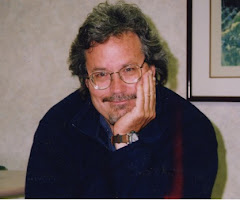Hanson argues that's what we've now entered. I've had an on-again, off-again conversation going with Ed Veith for ten years about how Postmodernism was a "transitional" stage, mostly reacting to modernism. We've noted how it had its good sides: rediscovery of things that were not "modern", and a balancing out of our over-reliance on "scientific thinking" and rationalism as a panacea for all mankind. But it still remained, to me, an unstable way of thinking, like a cleaned house awaiting what came next. Hanson still calls it postmodernism, but I think we've gone beyond that vacuum into the Hereafter. Here are snippets from Hanson's very political take on what's come next:
Barack Obama promised us not only transparency, but also a new respect for science. In soothing tones, he asserted that his administration was “restoring scientific integrity to government decision-making.”
In our new Enlightenment of Ivy League Guardians, we were to return to the rule of reason and logic. Obama would lead us away from the superstitious world of Bush’s evangelical Christianity, “intelligent design,” and Neanderthal moral opposition to human-embryo stem-cell research.
Instead, we are seeing an unprecedented distortion of science — indeed, an attack on the inductive method itself. Facts and reason are trumped by Chicago-style politics, politically correct dogma, and postmodern relativism.
He then goes on to count the many ways we are no longer being led to think logically about the world, including this:
Then one makes a diagnosis based on such empirical findings. (E.g., unlike the case with radical anti-abortionists or violent environmentalists, in the last eight years we have witnessed a series of unhinged Muslim males who have justified their violent actions through affinities with, or promotion of, radical Islam.)
All those data lead to a scientific conclusion and prognosis. (E.g., while only a small proportion of Muslims have committed violent attacks, over the past eight years there have been dozens of cases in which angry Muslim males have attacked Jewish centers or U.S. military personnel, and have shot or deliberately run over individual Americans. Therefore, there is a danger that a subset of young Muslims is disproportionately committing terrorist acts. Furthermore, the combination of disaffected Muslim males and ubiquitous jihadist propaganda, together with Western denial, will logically lead both to more formal plots and to more lone-wolf attacks.)
But not so fast: Remember, we are now in an age of superstition, not rationalism, in which utopian ends justify unscientific means.
The new Age of Superstition. Embrace it, live it, enjoy it. It may be with us for awhile.


No comments:
Post a Comment